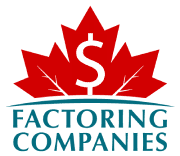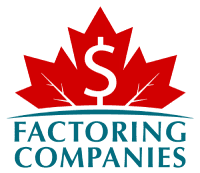
Does invoice factoring hurt your credit? Will it damage your customer relationships? Are factoring agreements too restrictive? These are common concerns about factoring, but the truth is far more encouraging. Factoring does not hurt your credit, agreements are flexible, and professional factors help preserve customer trust. Still, invoice factoring myths persist, leaving many businesses hesitant to explore this valuable funding option. Let’s dive deeper into the most common misconceptions and the truths behind them to help you make informed decisions for your business.
Myth #1: Invoice Factoring is Only for Struggling Businesses
One of the most common misconceptions invoice factoring has is that it’s only used by struggling businesses facing financial difficulties. This myth overlooks the strategic advantages factoring offers for businesses of all sizes and stages of growth.
Truth: Healthy Businesses Leverage Factoring, Too
Invoice factoring has become a standard practice for thriving companies that want to optimize their cash flow and fund expansion. Many healthy businesses use factoring as part of a broader financial strategy to fuel growth and stay competitive.
Why Top Companies Use Invoice Factoring
Top-performing businesses choose factoring to access working capital quickly, enabling them to seize growth opportunities without taking on debt. This approach ensures stability and flexibility in their financial planning.
Benefits of Invoice Factoring for Healthy Businesses
Virtually all businesses have working capital needs at some point or another. While traditional loans tend to be the go-to once businesses reach a certain size and are stable, they can take weeks or months to pay out and create debt that must be paid back with interest. Factoring doesn’t come with these issues, so it aligns well with a multitude of situations healthy businesses might need to address.
How Businesses Use Factoring to Grow
Most businesses require an injection of working capital to grow. The funding is often used to cover things like scaling operations, hiring, or marketing. By using factoring to boost business growth, the company can do all this and more in a sustainable way.
Factoring for Growing Companies
Companies experiencing rapid growth often wind up with a cash flow gap. This is because the work involved and the upfront investment increases, but the return on those investments won’t be seen for weeks or months. Invoice factoring for growing businesses bridges this gap, ensuring the company can maintain operations and cover the costs of growth without cutting corners that can damage the long-term health of the business.
Factoring as a Standard Practice for Big Businesses
Large enterprises leverage factoring as a strategic tool to streamline cash flow and reduce administrative burdens associated with collections. By outsourcing receivables management through factoring, they can focus on core business activities while ensuring steady funding.
Myth #2: Factoring Hurts Your Business Credit Score
Another common misconception is that businesses can’t use factoring without affecting credit scores or that it damages scores. This isn’t the case at all. This belief likely stems from the idea that factoring is similar to taking on debt or that it signals financial instability.
Truth: Factoring and Business Credit Health Are Rarely Linked
Consider this invoice factoring myth debunked. The truth about invoice factoring is that it almost never has an impact on your business credit score, though it can impact it indirectly for the better at times.
Factoring for Financial Stability, Not Credit
Most businesses use factoring to secure immediate working capital and maintain financial stability, not to address credit issues. By prioritizing steady cash flow, companies can operate effectively without the risk of negatively affecting their credit score.
Direct Factoring Impact on Credit
Invoice factoring typically has no direct impact on credit scores because it’s not a loan. Since there’s no debt involved, factoring doesn’t create liabilities that appear on your credit report, leaving your score untouched.
Indirect Impact of Factoring on Business Credit
While factoring doesn’t directly influence credit, its benefits can have an indirect positive effect. For instance, it ensures businesses have the funds to pay suppliers and creditors promptly, which helps maintain a healthy payment history and can help build your business credit.
Myth #3: Invoice Factoring is Too Expensive to Be Worth It

There are countless invoice factoring misconceptions related to costs. However, the greatest is arguably that the rates are so high that factoring is not worthwhile.
Truth: Factoring is Worthwhile in Many Situations
Many invoice factoring cost myths stem from a misunderstanding of how factoring fees work. While it’s true that factoring involves costs, businesses often find it to be a cost-effective solution due to the immediate cash flow it provides and the reduced financial stress it offers.
Factoring Costs vs. Traditional Financing
It’s true that traditional loans often cost less than factoring. However, when comparing factoring costs with loans, it’s essential to look beyond just the numbers. While loans may have lower interest rates, they often come with hidden costs like application fees, collateral requirements, and rigid repayment terms.
In contrast, factoring expenses compared to bank loans is straightforward, with fees based only on the value of the invoices being factored. This transparency makes factoring an attractive option for businesses seeking immediate cash flow without the burden of long-term debt.
Factoring Costs vs. Other Alternative Funding Options
Factoring is often more affordable than other alternative funding methods, such as merchant cash advances or credit card financing. Its transparent fee structure and lack of compounding interest make it an attractive choice for businesses needing fast, reliable funding.
Saving Money with Factoring
Businesses often discover that factoring saves them money in the long run by ensuring they have the working capital needed to avoid disruptions. Additionally, it eliminates the administrative burden of chasing payments, allowing teams to focus on core business operations instead.
Perform a Factoring Cost Comparison
To see if factoring is the right fit for your business, it’s crucial to perform a factoring cost comparison. By evaluating the cost of factoring alongside its benefits, you can determine whether it’s the most effective funding solution for your unique needs.
Myth #4: Your Customers Will Think Your Business is in Trouble

Misunderstandings about invoice factoring often lead to the false belief that using this funding method signals financial distress. However, this couldn’t be further from the truth.
Truth: Businesses Know Factoring is Used by Healthy Companies
Many successful businesses leverage factoring as a proactive solution to manage cash flow. Rather than a sign of trouble, it’s a testament to their strategic approach to ensuring stability, meeting obligations, and maintaining smooth operations.
Factoring’s Effect on Customer Perception
The belief that customers will think your business is in trouble stems from outdated views of factoring. In reality, customers care more about consistent service and timely delivery than how a business manages its cash flow. Factoring ensures companies can meet these expectations.
How Factoring Protects Business Reputation
Factoring helps businesses avoid late payments to suppliers and ensures smooth operations. This reliability enhances trust with partners and clients, showing that the company is dependable and well-managed.
Invoice Factoring and Reputation Management
Factoring and business reputation go hand in hand. By using factoring strategically, businesses can secure the cash flow needed to maintain a professional image, prevent operational delays, and meet their commitments. This not only preserves their reputation but often enhances it by demonstrating financial responsibility.
Myth #5: Factoring Will Hurt Your Customer Relationships
Many businesses worry that involving a factoring company will negatively impact customer relationships, particularly if the factoring company contacts customers during the payment process. This concern stems from the fear that such interactions might feel intrusive or unprofessional.
Truth: Factoring Preserves Professional Customer Relationships
Factoring companies are committed to maintaining professionalism in all customer interactions. In most cases, payments are processed without any direct contact—customers simply use a payment portal provided by the factoring company. If communication does occur, it is handled with a focus on professionalism and maintaining your business’s reputation.
How Invoice Factoring Really Works
When businesses understand how invoice factoring really works, these concerns are often alleviated. Factoring companies serve as a financial partner, ensuring customers can make payments smoothly through a secure system. Their role is supportive, not invasive, ensuring your customers continue to enjoy the same great experience with your company.
Professionalism in Payment Management
Factoring companies follow strict protocols to ensure their involvement reflects positively on your business. If they need to contact customers, it’s done in a courteous and professional manner. This approach reinforces your reliability as a business while ensuring timely payments.
Why Businesses Trust Factoring
The common practice of factoring reflects its effectiveness as a financial solution. Factoring allows businesses to stabilize cash flow and manage customer payments without disrupting customer relationships. By outsourcing payment management to professional factoring companies, businesses can focus on growth while ensuring their customers are treated with care.
Myth #6: Factoring Ties You to a Long-Term Contract
Many businesses worry that invoice factoring locks them into rigid, long-term agreements that limit their flexibility. This misconception stems from outdated practices, but the reality is far different today.
Truth: Modern Factoring Offers Flexibility
Factoring agreements have evolved to meet the needs of modern businesses. With flexible terms in factoring agreements, companies can choose options that suit their cash flow needs without being tied down by restrictive contracts.
Flexible Terms in Factoring Agreements
One of the biggest invoice factoring myths and facts to clarify is the flexibility of today’s agreements. Many factoring companies now offer month-to-month contracts or even spot factoring and single invoice options, ensuring businesses can access funding on their terms.
Modern Invoice Factoring Flexibility
The modern invoice factoring flexibility provided by reputable factoring companies gives businesses the freedom to scale their funding needs as required. This adaptability makes factoring a practical solution for companies of all sizes and industries.
Why Flexibility Matters
In today’s fast-paced business environment, flexibility is critical. Factoring agreements that prioritize adaptability help businesses maintain control over their financial decisions while still benefiting from reliable cash flow solutions.
Myth #7: Invoice Factoring is the Same as Invoice Discounting
When exploring invoice factoring truth vs. myths, other invoice-related funding solutions are inevitably introduced every time. One of the most common mix-ups is invoice factoring vs. discounting, also known as invoice financing or accounts receivable financing. While they may seem similar on the surface, they are distinct financial tools with different processes and benefits.
Truth: Factoring and Discounting Are Not the Same
Factoring involves selling your invoices to a factoring company, which takes over collections. Invoice discounting, on the other hand, is a loan secured against unpaid invoices, leaving you responsible for collecting payments.
Myths Surrounding Invoice Discounting
Many myths surrounding invoice discounting contribute to this confusion. Some assume the two terms are interchangeable, but they differ significantly in their impact on cash flow, customer relationships, and business operations. Factoring provides a more comprehensive solution by including payment management.
Key Differences Between Factoring and Discounting
- Payment Management: Factoring companies handle collections while discounting leaves this responsibility with the business.
- Ownership of Invoices: In factoring, invoices are sold to the factoring company, while discounting uses them as collateral for a loan.
- Customer Experience: Factoring ensures professional interaction with customers while discounting often requires direct communication from the business.
Why Factoring Stands Out
Factoring offers businesses a holistic solution by combining immediate cash flow with professional payment management. For companies seeking efficiency and simplicity, factoring often provides more value than discounting.
Myth #8: Once You Factor, You’ll Become Dependent on It
A common misconception about factoring is that businesses can’t stop once they start, becoming trapped in a cycle of dependency. This fear feeds into broader invoice factoring risk myths, but the reality is far more nuanced.
Truth: Factoring Is a Scalable and Flexible Tool
Factoring is designed to be a flexible funding solution, not a permanent crutch. Many businesses use it temporarily, scaling up or down based on their needs. The ability to adapt factoring usage ensures companies retain control over their financial strategy.
Fact and Fiction in Invoice Factoring
When separating fact and fiction in invoice factoring, it becomes clear that dependency is a myth. Factoring provides working capital for short-term cash flow challenges or growth opportunities. Businesses can stop factoring when their financial situation stabilizes or they no longer need external funding.
Why Businesses Choose Factoring Temporarily
- Project-Based Cash Flow Needs: Some businesses factor invoices during periods of rapid growth or large-scale projects, then stop once cash flow normalizes.
- Seasonal Flexibility: Companies with seasonal cash flow fluctuations may factor only during peak seasons.
- Short-Term Solutions: Factoring can be used to bridge gaps while businesses wait for long-term financing or operational stability.
Reducing Risk Through Strategic Factoring
Concerns about dependency often stem from invoice factoring risk myths, but businesses can minimize risk by using factoring strategically. By working with reputable factoring companies and maintaining control over how and when they factor, businesses can ensure it remains a tool, not a necessity.
Get the Facts on Factoring
Don’t let myths about factoring services hold you back from exploring a funding solution that could transform your business. Whether you’re navigating cash flow challenges or planning for growth, invoice factoring offers flexibility, professionalism, and efficiency. To learn how this proven solution can help your business thrive, request a complimentary factoring quote.
FAQs on Invoice Factoring Myths
Does factoring make a business dependent on it?
Not at all. Factoring is a flexible tool that businesses can use temporarily or seasonally to meet specific cash flow needs. Many companies stop factoring once their financial situation stabilizes.
Can factoring hurt customer relationships?
No. Factoring companies prioritize professionalism and often process payments without direct contact with your customers. When communication is necessary, it is handled courteously to maintain your business’s reputation.
How can I decide if factoring is right for my business?
The best way to determine if factoring fits your needs is to request a complimentary factoring quote. This allows you to explore options and find a solution tailored to your business goals.
Does factoring affect business credit scores?
No, factoring does not directly impact business credit scores. Since it isn’t a loan, there’s no debt or repayment history involved. In fact, factoring can indirectly help maintain credit by ensuring timely payments to suppliers and creditors.
Is invoice factoring cost-effective?
Yes, factoring is often cost-effective for businesses that need immediate cash flow. While there are fees involved, the benefits, such as covering operational costs, meeting payroll, or taking on new projects, often outweigh the expenses.
Does invoice factoring affect customer trust?
No, factoring does not erode customer trust when handled professionally. Factoring companies typically process payments through a portal, and any direct communication with customers is conducted with professionalism and care.
Are factoring contracts long-term commitments?
Not necessarily. Many factoring agreements offer flexible terms, including month-to-month options or even per-invoice arrangements, making it easy to scale up or down as needed.

About Factoring Companies Canada
Related Articles
Get an instant factoring estimate
Factoring results estimation is based on the total dollar value of your invoices.
The actual rates may differ.
CLAIM YOUR FREE FACTORING QUOTE TODAY!
PREFER TO TALK?
You can reach us at
1-866-477-1778
Get an instant factoring estimate
Factoring results estimation is based on the total dollar value of your invoices.
The actual rates may differ.
CLAIM YOUR FREE FACTORING QUOTE TODAY!
PREFER TO TALK? You can reach us at 1-866-477-1778











